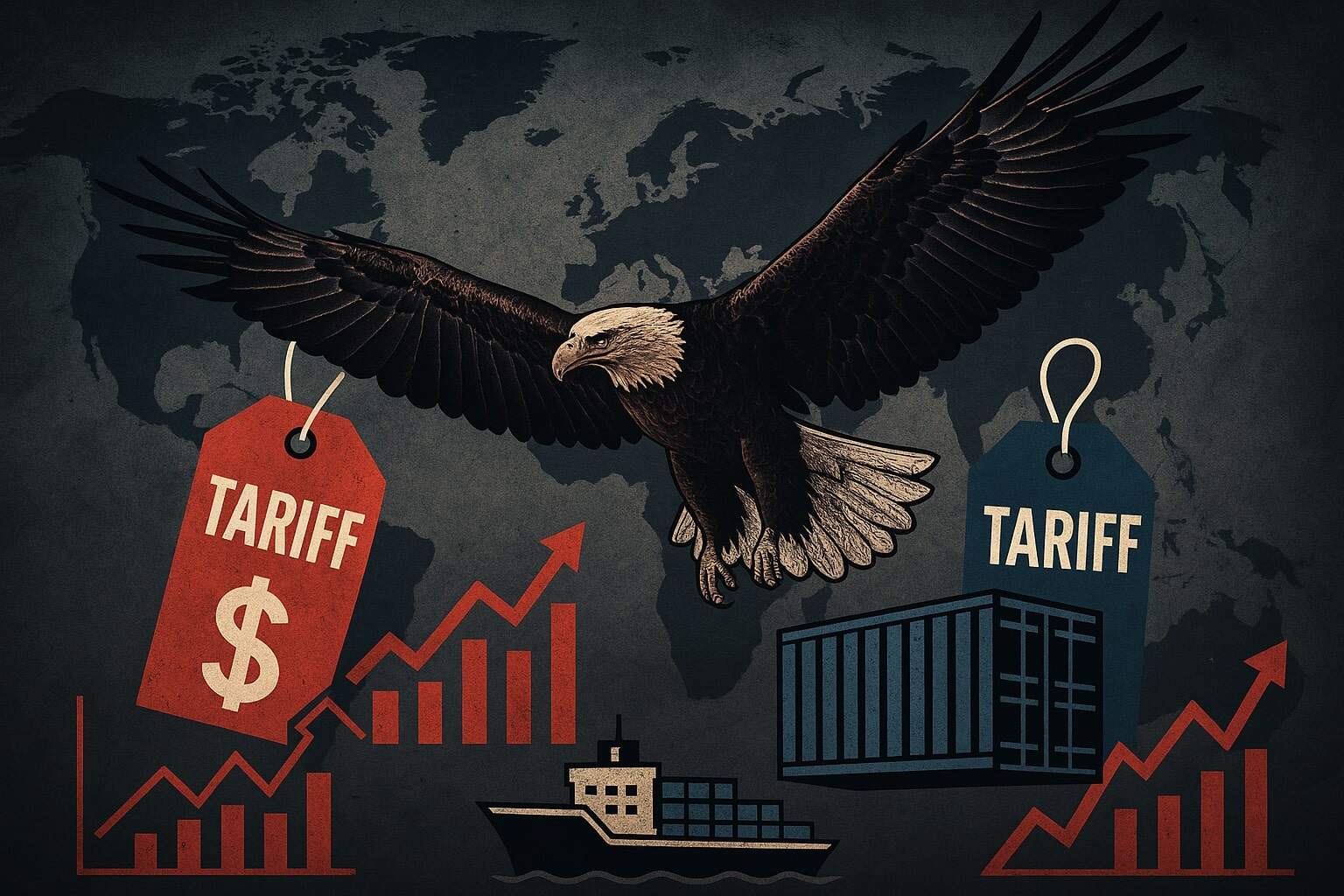Since returning to the White House, President Donald Trump has launched a whirlwind of policy changes that are reshaping the United States’ domestic landscape and its role on the global stage. Through over 300 executive orders, directives, and strategic engagements—like his much-discussed call with Russian President Vladimir Putin—Trump is advancing his “America First” agenda with unprecedented speed. These actions span international relations, immigration, energy, military and social policies, and government restructuring, each carrying profound geopolitical implications.
This article analyzes Trump’s early moves, synthesizing their content to explore how his administration is altering U.S. geopolitics. From a controversial pause in Ukraine’s energy attacks to sweeping immigration crackdowns and a retreat from global climate commitments, Trump’s second term signals a seismic shift. This analysis examines these developments through a geopolitical lens, assessing their impact on U.S. power, alliances, and the global order.
U.S.-Russia Relations: A Diplomatic Pivot with Global Stakes
One of Trump’s most geopolitically charged actions has been his phone call with Vladimir Putin, a move framed as a diplomatic win for Russia. The conversation, centered on the Ukraine war, saw Putin reject a full ceasefire but agree to pause attacks on Ukraine’s energy infrastructure, Trump hailed the call as “very good and productive,” while Putin set preconditions—such as ending Western military aid to Ukraine—that tilt the terms in Russia’s favor.
Geopolitical Implications
From a geopolitical perspective, this exchange is a potential turning point. Putin’s framing of the call as a victory underscores Russia’s intent to exploit Trump’s openness to negotiation. By pausing energy attacks rather than committing to a ceasefire, Putin tests Trump’s resolve while maintaining leverage over Ukraine. Russia’s emphasis on economic benefits—like cooperation in aluminum and rare minerals—suggests a strategy to entangle U.S. interests with Moscow’s, potentially at the expense of traditional allies.
This shift departs sharply from the Biden administration’s staunch support for Ukraine, raising alarms across Europe. Leaders like Germany’s Olaf Scholz and the UK’s Keir Starmer have pushed for a total ceasefire, but Trump’s phased approach—moving away from a hardline demand for peace—could fracture NATO unity. If the U.S. softens its stance, Russia may gain ground in Eastern Europe, emboldening its territorial ambitions and challenging the post-Cold War order.
Moreover, Trump’s rapport with Putin could signal a broader realignment. Improved U.S.-Russia relations might ease sanctions or foster economic ties, but they risk alienating European partners and weakening the U.S.’s moral authority as a defender of democracy. The tension between Trump and Ukraine’s Volodymyr Zelensky, exacerbated by aid suspension threats, further complicates this dynamic, potentially leaving Kyiv vulnerable and straining U.S. credibility in the Global South, where Ukraine’s plight resonates.
Immigration and Border Policies: Fortress America’s Global Echoes
Trump’s immigration agenda, is a cornerstone of his domestic strategy with far-reaching geopolitical effects. Key actions include declaring a national emergency on the U.S.-Mexico border, resuming border wall construction, suspending asylum and refugee admissions, and attempting to end birthright citizenship (blocked by a judge). He has also designated drug cartels as terrorist organizations and invoked the 1798 Alien Enemies Act to target foreign gang members.
Geopolitical Implications
These policies aim to create a “Fortress America,” but their ripple effects extend beyond U.S. borders. The border emergency and “Remain in Mexico” policy could sour relations with Mexico, a critical partner in trade and migration management. Labeling cartels as terrorists—a move echoing Reagan-era counterinsurgency tactics—may justify military action but risks provoking retaliation, destabilizing the region. Mexico and Central American nations may view these unilateral steps as hostile, driving them toward alternative partners like China, which has steadily expanded its influence in Latin America.
The suspension of refugee resettlement and legal immigration pathways from countries like Cuba, Haiti, Nicaragua, and Venezuela threatens to exacerbate humanitarian crises. Displaced populations may overwhelm neighboring states, fueling instability that could spill across borders. This retreat from America’s historical role as a refuge for the oppressed could diminish its soft power, particularly in the Western Hemisphere, where migration is a shared challenge.
Globally, these restrictions signal a rejection of multilateral cooperation on migration, a stance that may clash with allies like Canada and the EU, who favor coordinated approaches. As the U.S. turns inward, rivals like China could seize the opportunity to champion humanitarian causes, gaining favor in regions where America’s influence wanes.
Energy and Climate Policies: Fossil Fuels Over Global Consensus
Trump’s energy and climate policies, prioritize fossil fuels over international commitments. He declared a national energy emergency to expand oil and gas production, withdrew from the Paris Climate Agreement, and rolled back environmental regulations, opening Alaska to drilling.
Geopolitical Implications
This fossil fuel push has significant geopolitical stakes. By boosting domestic production, the U.S. could reduce reliance on Middle Eastern oil, altering energy market dynamics and weakening OPEC’s grip. However, it also isolates the U.S. from allies committed to climate action. Europe, Japan, and South Korea—key partners in the Paris Accord—may see this as a betrayal, straining diplomatic ties at a time when climate cooperation is a litmus test for alliance strength.
The withdrawal from global climate frameworks could embolden other major polluters like China and India to relax their commitments, accelerating environmental degradation and resource conflicts. Small island nations and climate-vulnerable states, already critical of U.S. policy, may turn to Beijing, which dominates renewable energy markets, further tilting the economic balance.
Trump’s energy independence rhetoric may resonate domestically, but it risks ceding leadership in the green economy—a sector poised to define 21st-century geopolitics. As China invests heavily in solar, wind, and battery technology, the U.S.’s fossil fuel focus could leave it lagging in a critical arena of global competition.
Military and Social Policies: Domestic Culture Wars, Global Perceptions
Trump’s military and social policies, reflect a conservative cultural shift with geopolitical undertones. He banned transgender individuals from the military (temporarily blocked by a judge), eliminated diversity, equity, and inclusion (DEI) programs, recognized only two genders in official documents, and reinstated troops dismissed for refusing COVID-19 vaccines. He also pardoned January 6 rioters, a move steeped in domestic symbolism.
Geopolitical Implications
These policies, while rooted in U.S. culture wars, influence America’s global image. The transgender ban and DEI rollback may alienate progressive allies, particularly in Europe, where inclusivity is a policy priority. Nations like Sweden or Canada could distance themselves diplomatically, perceiving the U.S. as regressive, which might weaken coalition-building in forums like the UN.
The reinstatement of vaccine-refusing troops and January 6 pardons could signal internal discord, undermining perceptions of U.S. military readiness and political stability. Adversaries like Russia and China may exploit this narrative, portraying America as divided and unreliable—a theme already evident in their state media.
Soft power, a key U.S. asset, hinges on projecting values like freedom and equality. Trump’s social policies risk eroding this, particularly in the Global South, where progressive movements often look to the U.S. as a model. If America’s moral authority falters, rivals could fill the vacuum, reshaping ideological alignments.
Government Restructuring: Efficiency or Vulnerability?
Trump’s government restructuring, highlighted in emphasizes efficiency over federal control. He created the Department of Government Efficiency, froze federal hiring, and shifted disaster preparedness from FEMA to states, introducing a National Risk Register.
Geopolitical Implications
Decentralizing disaster preparedness could weaken U.S. resilience—a critical factor in geopolitical stability. In an era of climate-driven disasters and cyberattacks, a fragmented response risks exposing vulnerabilities that adversaries could exploit. States, burdened financially, may struggle to match FEMA’s coordination, potentially diminishing America’s reputation as a crisis leader.
The Department of Government Efficiency and hiring freeze aim to shrink bureaucracy, but they may strain the U.S.’s ability to sustain global commitments—diplomacy, aid, and military presence rely on a robust federal workforce. A leaner government might appeal domestically, but it could cede influence to nations like China, whose centralized systems enable rapid international engagement.
This inward focus contrasts with the U.S.’s postwar role as a global stabilizer. If crises reveal cracks in this new model, allies may question America’s reliability, while rivals probe its weaknesses.
Legal and Constitutional Challenges: A Fractured Power
Trump’s agenda faces judicial resistance, and legal blocks on birthright citizenship and federal aid cuts These clashes underscore a broader tension between executive ambition and constitutional checks.
Geopolitical Implications
A nation mired in legal battles projects instability, a perception adversaries can weaponize. Russia and China, adept at exploiting U.S. divisions, may intensify disinformation campaigns or challenge American interests—say, in the South China Sea—while Washington is distracted.
The pardons of January 6 rioters deepen this fracture, risking unrest that could sap U.S. focus on external threats. A weakened domestic front undermines the projection of strength, potentially accelerating a multipolar shift where America’s primacy erodes.
Broader Context: The Global Chessboard
Trump’s policies unfold against a backdrop of rising powers and shifting alliances. China’s economic reach, Russia’s assertiveness, and the Ukraine war frame a world where U.S. leadership is contested. Withdrawal from the Paris Accord and WHO, alongside trade protectionism (“What Trump Has Done…”), risks isolating the U.S. from multilateral systems that once amplified its influence.
The “US HHS Drops Advisory Labeling Gun Violence a Public Health Crisis” , while domestic, reflects a broader rejection of progressive frameworks that could weaken U.S. alignment with allies on public safety. As NATO and the UN grapple with global challenges, Trump’s unilateralism may cede ground to rivals who thrive in collective forums.
Conclusion: A High-Stakes Gamble
Trump’s second term is a geopolitical gamble—prioritizing sovereignty and strength over consensus and cooperation. His Putin outreach, immigration fortress, fossil fuel resurgence, and government overhaul could bolster U.S. autonomy short-term, but they risk long-term costs: strained alliances, diminished soft power, and a fractured domestic base.
Will this “America First” redux secure U.S. dominance, or hasten its retreat in a multipolar world? The answer hinges on execution and global reception. For now, Trump’s moves have set the stage for a volatile new era, where the stakes—for America and the globe—are nothing short of existential.





Incredible analysis!